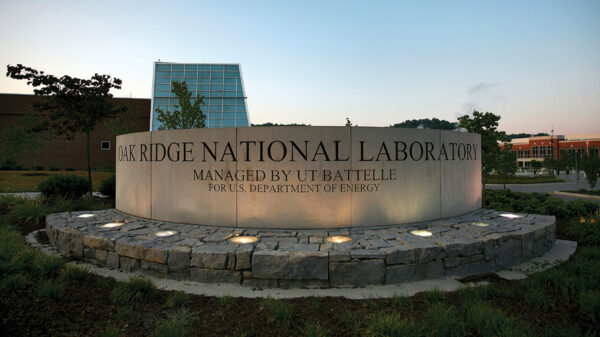The Governments of Saskatchewan and New Brunswick signed a memorandum of understanding on Monday (MoU) to further develop small modular reactor (SMR) technologies.
This new agreement builds upon a previous MoU signed in 2019 that committed to advancing SMRs in Canada. Alberta later joined the agreement in April 2021. Through their collaboration, the participating provinces released a joint strategic plan in March 2022, which outlines their path forward on SMR development.
Under this new MoU, Saskatchewan and New Brunswick, along with their utility crown corporations, SaskPower and New Brunswick Power, will be able to formally share experiences, knowledge, and successes on various aspects of SMR deployment plans.
These include supply chain development, Indigenous relations, labour market development, regulations, and more. The MoU is expected to boost cooperation between the provinces on SMR technologies.
“This renewed partnership will bring mutual benefit to both provinces by capturing opportunities stemming from the work on nuclear energy development across Canada and internationally,” said Don Morgan, minister of Crown Investments Corporation of Saskatchewan.
“Together, we can accelerate the progress of decarbonising power grids and industrial facilities using SMR technologies.”
Advanced small modular reactors (SMRs) will be an essential part of New Brunswick’s future energy mix as we transition to carbon-free sources.
Today we signed a MOU with Saskatchewan to work together on the development and deployment of SMRs.https://t.co/jbnciQTXn1 pic.twitter.com/TbwJyrFDXc
— Government of NB (@Gov_NB) April 17, 2023
Read more: Canada launches $29.6M small modular reactor funding program to mitigate fossil fuels
Read more: Ontario considers large-scale nuclear power to cut carbon emissions
Saskatchewan to have an SMR operating by late 2020’s
SaskPower announced in June 2022 that it had selected GE-Hitachi’s BWRX-300 as the preferred SMR technology for initial grid-scale deployment in Saskatchewan. This is the same model that Ontario Power Generation selected for its Darlington New Nuclear Project in December 2021.
Saskatchewan aims to have an SMR operating by the late 2020s, with the potential to develop a larger SMR industry in the province in the future.
New Brunswick’s Climate Change Action Plan recognizes the importance of SMR technologies in achieving net-zero electricity emissions by 2035. ARC Clean Technology Canada ARC-100, a 100 MWe sodium-cooled fast reactor, has been selected for deployment in New Brunswick.
“New Brunswick has expertise to share from four decades of reliable nuclear operations,” said Natural Resources and Energy Development Minister Mike Holland in a news release.
“We are committed to playing a leadership role nationally and globally on clean and renewable energy. Nuclear energy is a key resource in the transition to a low-carbon future and our two provinces are well positioned to lead this evolution.”
Under the climate change action plan, New Brunswick is leading Stream 2 development of the Generation IV advanced SMR technology. In addition to the ability to produce safe and reliable clean energy, Generation IV advanced SMRs will also have the capability to generate high-temperature heat which is ideal for the decarbonization of industrial processes as well as the production of hydrogen.
A delegation from Saskatchewan toured the Point Lepreau Nuclear Generating Station last fall to gain a deeper understanding of the requirements for operating in a nuclear environment.
It is based on proven technology developed at the US government’s Argonne National Laboratory and operated successfully for 30 years at the Experimental Breeder Reactor-II reactor. The province plans to have a fully operational ARC-100 unit at the Point Lepreau nuclear site by 2029.
Additionally, the Belledune Port Authority in northern New Brunswick is considering using an ARC-100 for the provision of energy for hydrogen production and other industries as part of a future expansion at the port.
Earlier this year, the Minister of Natural Resources and to the Minister of Environment and Climate Change, announced the launch of the Enabling Small Modular Reactors Program. The $29.6 million program will be funded by Natural Resources Canada and be used to develop supply chains for SMR manufacturing, fuel supply and security.
Follow Joseph Morton on Twitter
joseph@mugglehead.com













